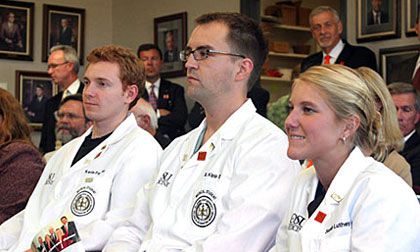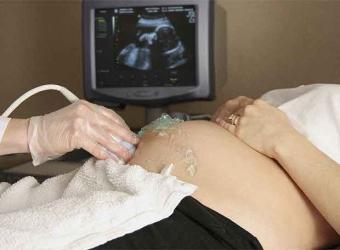UK abortionists worried about future of abortion after med students support conscientious objection
- Tue Jul 26, 2011 15:26 EST
- Comments (3)
- Tags: Abortion, Conscience, Freedom, Uk
LONDON, July 26, 2011 (LifeSiteNews.com) –  A survey of medical students in Britain, published in the Journal of Medical Ethics, has found that almost half believe doctors should be free to exercise their right of conscience in refusing to perform any procedure to which they object on moral, cultural or religious grounds – a finding that has the country’s leading abortion providers worried.
A survey of medical students in Britain, published in the Journal of Medical Ethics, has found that almost half believe doctors should be free to exercise their right of conscience in refusing to perform any procedure to which they object on moral, cultural or religious grounds – a finding that has the country’s leading abortion providers worried.
45.2% of those surveyed answered ‘yes’ to the question, “Do you think that doctors should be entitled to object to any procedure for which they have a moral, cultural or religious disagreement?” while 40.6% said ‘no’ and 14% were unsure.
Lead researcher Dr. Sophie Strickland said abortion ranks as the most contentious issue for the 733 medical students surveyed.
“The survey revealed that almost a third of students would not perform an abortion for a congenitally malformed foetus after 24 weeks, a quarter would not perform an abortion for failed contraception before 24 weeks and a fifth would not perform an abortion on a minor who was the victim of rape,” said Dr. Strickland.
“In light of increasing demand for abortions, these results may have implications for women’s access to abortion services in the future,” she added.
The survey also found that, among religious medical students, demand for the right to conscientiously object was greatest in Muslim students (76.2%), followed by Jewish students (54.5%), Protestants (51.2%) and Catholics (46.3%).
Dr. Strickland pointed out that fewer doctors are willing to perform abortions even as abortion rates increase.
“The Department of Health has issued statistics showing that, although there are an increasing number of abortions taking place in the UK, fewer doctors are willing to perform them,” she said.
“Once qualified as doctors, if all these respondents acted on their conscience and refused to perform certain procedures, it may become impossible for conscientious objectors to be accommodated in medicine.”
Ann Furedi, chief executive of the British Pregnancy Advisory Service, the UK’s leading independent abortion provider funded by the National Health Service, expressed concern over the survey results and the implications for Britain’s abortion industry.
 “Abortion is taught increasingly infrequently in medical school, and students may not be required to engage much with the reasons why a woman may find herself with an unwanted pregnancy and the distress this may cause,” Furedi told The Guardian. “All of us involved in women’s reproductive healthcare need to ensure that young doctors understand why women need abortions, and that this is a profession to be proud of.”
“Abortion is taught increasingly infrequently in medical school, and students may not be required to engage much with the reasons why a woman may find herself with an unwanted pregnancy and the distress this may cause,” Furedi told The Guardian. “All of us involved in women’s reproductive healthcare need to ensure that young doctors understand why women need abortions, and that this is a profession to be proud of.”
However, in a press release, Anthony McCarthy of the UK’s Society for the Protection of Unborn Children (SPUC) praised the med students’ stance on conscientious objection to abortion, but found Dr. Strickland’s statement that conscientious objectors may not have a place in the country’s medical system troubling.
“While it is encouraging that many medical students are standing up for their autonomy in relation to fundamental moral truths concerning life and fertility, it is troubling that Dr Sophie Strickland, the survey’s author, prominent ethicists and professional bodies view such autonomy as a problem,” McCarthy said.
“Conscientious objection, unlike abortion, is a fundamental human right protected by international law. The problem is not medical students asserting their rights to conscientious objection, in line with Hippocratic respect for human life, but the distortion of medicine by unethical practices such as abortion,” he stated.
An abstract of the survey, titled “Conscientious objection in medical students: a questionnaire survey, Strickland SLM J.Med Ethics 2011” is available here.
